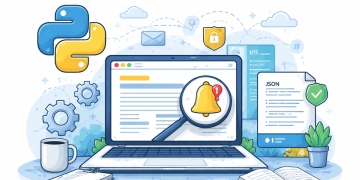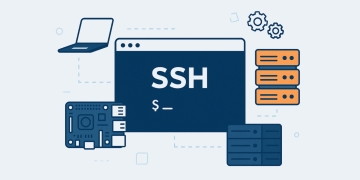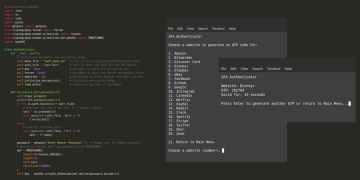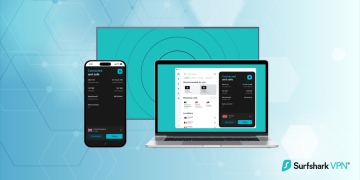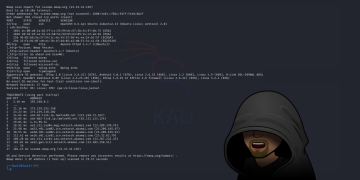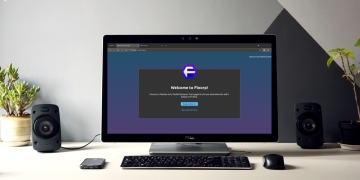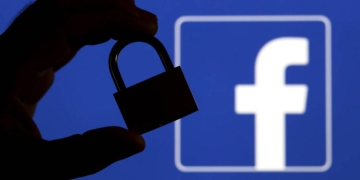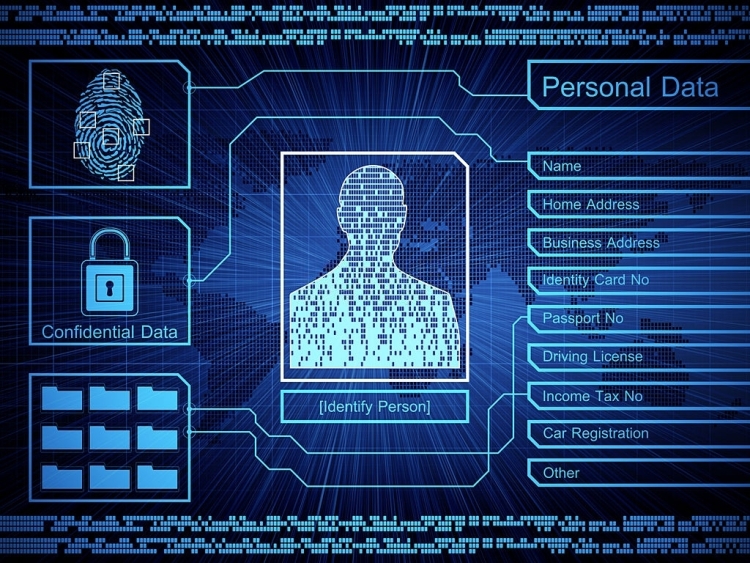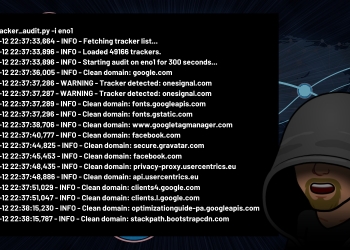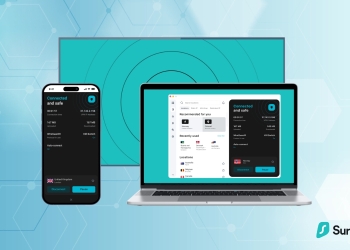Discover ‘The Ultimate Spy Game’: Uncover the truth behind targeted ads and search recommendations. Are you being spied on? Find out now!
Have you ever seen an AD pop up for something that you were just talking about or go to search for something and Google quickly shows a search recommendation for what you are searching for as you type it? These and other similar scenarios may have you scratching your head and wondering, am I being spied on?
The simple answer is yes, you are being spied on, but not in the sense that you may be thinking. Things go much deeper than tech giants just listening in on your microphone. With this article, I am going to explain what is going on behind the curtains and how you can reduce the amount of information that is being stored to profile your digital appearance.
Believe it or not, you are the product that is being sold within Social Platforms and within big tech. The platform itself is just a tool that captures your interest and gives you a common place to socialize and visit. Think of your online profile as a store shelf and you are the product that sits on that shelf. The platform that you are using is the store. The longer you sit on that shelf, the more opportunity the store has to show you off as the product to its consumers. However, you can also be a consumer that purchases other products like yourself.
To understand why you are a product is to understand advertising. The longer you utilize a service, the more opportunity the said service has to turn you into a recurring cash flow for them and others by advertising to you.
In order for these tech giants to help target advertising they need to collect as much information about you as they can. Your shadow profile is much bigger than anything a government organization has on you. Not to say that they don’t share this information with the government when requested. But, how do they collect this information on you?
You are building your shadow profile every time you make a post, like something that is shared, watch a video, listen to a song, browse the web, or even visit a physical location.
Yes, you read that correctly. They even know where you have been and who you were with even if you are not using a social platform. They know this by utilizing your GPS navigation data and the same from those around you. For example, let’s say John and Jane Doe went to Walmart and they came across an item that they wanted to know more about. John pulls out his phone and looks up the item and then they decide to purchase the item or not. Later, while Jane is scrolling through her social media timeline an advertisement is shown for that same item. Jane confusingly doesn’t know how an item that she and John looked at earlier would appear in her timeline. Was Jane being spied on? How did the social platform know that Jane looked at that item while in Walmart?
When John looked up the item on his phone, the website that he visited had a tracking code embedded in its source. That tracking code sent the data to the social platform that basically said, hey, John is interested in this item. During the same time, the social platform saw that Jane was also there according to her GPS location coordinates. Since both John and Jane were at the same coordinates, the platform assumed that both were interested in the item and displayed the advertisement to Jane.
The majority of the websites that you visit and the apps that you use are using a tracking code for social platforms and search engines. These tracking codes are used to help the publisher gather a database of people to advertise to and for analytics. Each time you visit a website, data about you is sent through these tracking codes. This data includes who you are, where you are at, how you got to their website, what device and browser you are using, what are you looking at, and much more. This data is then congregated together from all of the websites that you visit to build a shadow profile of who you are, where you are at, what you like, and dislike.
Here is another example of how you can be tracked. John and Jane went to an event and their friend Tom snapped a picture of them and posted it to his social timeline. Later that night, while the couple was browsing their social feed they received advertisements related to the event they were at. But, neither John nor Jane mentioned that they went to an event on social media, so how did the platform know? The platform identified John and Jane in the photo that Tom took and used their coordinates and the picture metadata to determine where they were and at what time they were there. This information was then curated and resulted in the advertisement that was displayed to them.
Scary? In a sense, these platforms know more about you than you do. That is scary.
These platforms will utilize all of the information that has been gathered about you to highly predict what you like or even what you may be thinking about. Let’s move on to another example.
John was browsing the web and came across a video that he enjoyed but wanted more information about a person in that video. He went to Google and started typing in his search term, only for Google to quickly identify a recommendation to exactly what he was looking for. John was happy but confused that he didn’t have to type in the entire phrase and quickly clicked on the suggested recommendation. How did Google know what John was looking for? Is Google a psychic?
Google is far from being physic in a traditional sense, but very psychic when it comes to predictive behavior. Google used an algorithm and matched his search term with what others searched for after watching similar videos. Google uses the data collected from the websites you visit to determine what you may search for just as the social platforms do. They use this data to also cater to advertisements.
Now let’s dive a little deeper into this.
You may be thinking, I will just get rid of my account or log out and browse anonymously to prevent these services from tracking me. Although doing this will reduce the data collected on you, it will not prevent your data from not being collected. Big tech has already thought of this and implemented a process to be able to still identify you even if you don’t use their services. They do this by collecting information about your location, device, and history. This information is used to build your shadow profile and when you do register for their service, they already have info on you. So no matter if you are logged out or have yet to subscribe, they still know who you are. If you are using an alt account because your normal account was suspended by the service, they can still identify you. Think about that for a minute and everything you may have posted while using an alt account. Scary!
As mentioned previously, you are also being tracked by the applications that you use on your device. These applications are gathering analytics about you and your behavior and send them off to be used to advertise to you later down the road. Big tech knows what you like to use on your phone and how often you use it.
With the huge amount of data that is collected on us, it is not surprising that our behavior and actions can be easily predicted by big tech. They know more about us than we do. They know what our lifestyle is, the type of people that we hang out with, our payment preferences, and even what political figure we may choose to vote for. But how can we reduce the amount of data that is being collected on us?
Luckily, we have several tools at our disposal that we can use to slow down data harvesting on us. The tool that you use will highly depend on the device that you are using and you may have to look for a similar tool for your device if it is not mentioned here.
Earlier this year, Facebook introduced a new tool called Off-Facebook Activity. This tool allows you to clear your off-site Facebook activity and to turn off tracking. If you are unable to find the setting within the Facebook app, you may have to log into the website from your browser.
Google has similar tools to delete and block tracking on your account. You will need to visit a couple of different pages in order to control everything. I would suggest having a look at your Google Activity and adjust the settings to your needs. While you are there, delete any activity that has been previously stored on you. The other page that you need to visit is your Google Account page and adjust the settings for Privacy & Personalization.
Amazon also collects a lot of data on you, especially if you use a smart device like the Echo. I would suggest checking out an article by Kim Komando on how to protect your data and keep it private on Amazon.
The method that I like to use after I have scrubbed my data from services is a tracking blocker. This prevents websites from tracking you in the first place. The downside, you will see advertisements that are not catered to you, but the same solution also solves that problem. A popular desktop browser extension that I use is uBlock Origin. This extension is available on Chrome, Opera, and Firefox. It will block tracking codes and advertisements on websites.
Tracking and advertisements are a little more difficult to block on mobile devices, but can still be done. Instead of using your device’s default browser, switch to the DuckDuckGo browser. It is a privacy-based browser that will keep you and your data private.
Google is a very popular search engine and is also commonly used as an action for searching for something (Google it). Google also is a big privacy concern and as I mentioned earlier in this article, they collect a lot of information on you. Instead of using Google to search for something, switch over and use DuckDuckGo.com or StartPage.com. Both services keep your data private while they scrape Google and other search services to locate your request.
One of the tools I use at home to protect my entire network from tracking and advertisements is a Raspberry Pi with Pi-Hole installed on it. All of the network traffic is routed through the Raspberry Pi and the Pi-Hole software blocks the advertisement and tracking codes. If you are tech-savvy or good at following directions, you can find videos on YouTube to help set this system up.
As an ultimate suggestion to protect your online privacy, you can utilize a VPN service. A VPN, or virtual private network, is a secure tunnel between your device and the internet. VPNs protect your online traffic from snooping, interference, and censorship. They do this by protecting your IP address from public view and routing your network requests through their servers first. Although there are some free VPNs out there, the majority of them will charge you a monthly fee.
Your device, browser, and operating system can also produce a digital fingerprint to identify you. This can be overcome by using extensions that spoof your device information or by using a Virtual Machine within your operating system environment.
No matter what you use to protect your online presence, it is better than not protecting yourself at all. Just using one or two suggestions from the above will greatly decrease the amount of data that is stored on you. If you are really serious about protecting your data, use a combination of everything listed.



